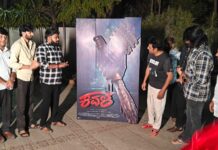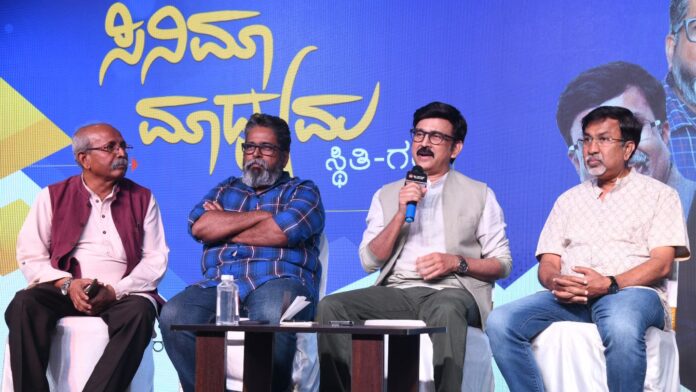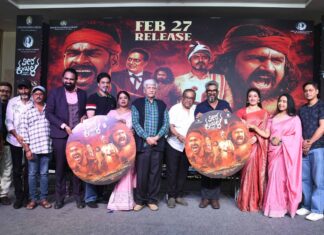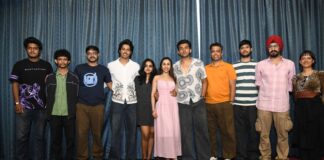The gentleman hero and eminent director, with over three decades of experience in South Indian cinema, Ramesh Aravind, was efficient and perfect in his address at the Karnataka Chalanachitra Patrakarthara Sangha seminar on Kannada cinema, ‘Sthithi Gathi’. He spoke at MMB Legacy as one of the chief guests. Nationally acclaimed director P Sheshadri and eminent writer and journalist Jogi (Girish Rao) were also present on Sunday evening for a fruitful discussion.
Renowned actor, presenter, and director Ramesh Aravind stated that only when there is a change in the work done can there be a change in the results. He emphasized that if one desires a change in any field, simply repeating the same work is never sufficient. Therefore, if results are sought, change becomes necessary and inevitable in the current times. Ramesh Aravind strongly felt that those who aspire to progress in life must embrace change. He asserted that there is no bleak outlook in the Kannada cinema industry. Even during compromise stages, the right kind of compromise that leads to a promising future is essential, observed Ramesh Aravind.
Nowadays, movies are becoming more accessible through OTT and other platforms. Consequently, the number of people attending cinema screenings at scheduled times has decreased. OTT platforms are available at the audience’s convenience, leading to an increase in movie-watching habits, he noted.
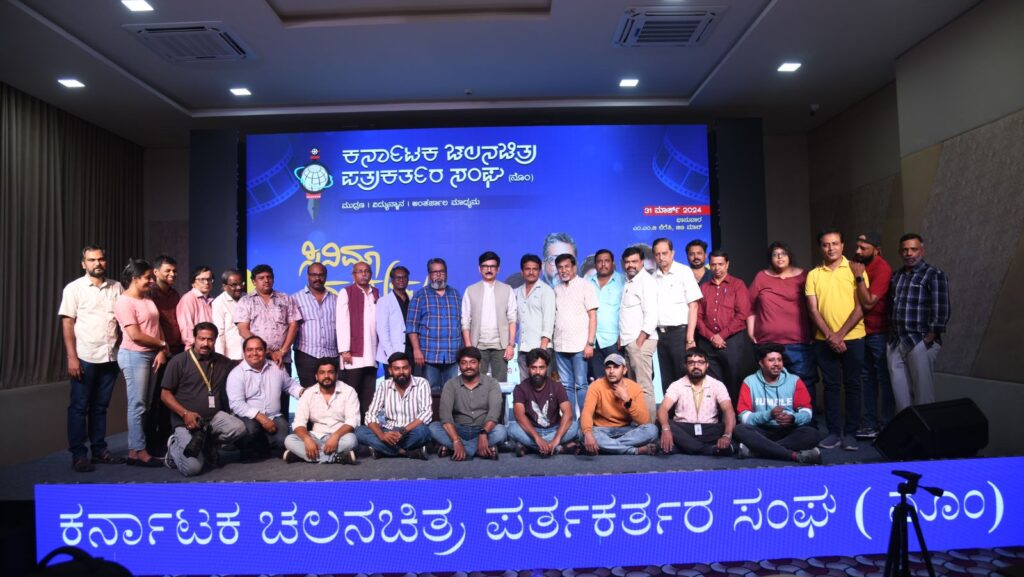
Respecting the audience’s time is crucial to attract them to cinemas. Similarly, each actor and media personality possesses unique talents; realizing one’s potential and presenting oneself distinctively is essential. While everyone may pretend to live, they should not compromise their integrity. Keeping this in mind ensures survival.
Senior director P. Sheshadri remarked that cinema has evolved into an industry today. Similarly, senior director Prof. Baraguru Ramachandrappa referred to cinema as ‘Kalodyama’.
Reflecting on the history of Kannada cinema, Sheshadri noted that while the silent film era marks a hundred years, the talkie film era is celebrating its 90th year. He argued that if the film industry were not in good condition, it would not produce over 250 films annually, indicating a healthy state of the industry.
Sheshadri also mentioned watching films in various languages, including Malayalam, Bengali, Marathi, and foreign films. According to him, actors and actresses in those industries commended Kannada technicians, suggesting that the Kannada film industry is thriving compared to others. He cited an average success rate of only five to ten percent.
Senior journalist Jogi emphasized the role of journalists in the constructive growth of the Kannada cinema industry. However, he noted the changing dynamics of news consumption in the digital age, where the immediacy of online platforms contrasts with the print media’s delayed coverage. He suggested that journalists should consider establishing a television channel to exercise their rights collectively.
Jogi also commented on the prevalent trend of rating films instead of discussing their narratives or quality. He suggested that critics face difficulties in providing objective assessments due to the pressure for positive reviews.
The office-bearers, including the president of the Karnataka Chalanachitra Patrakarthara Sangha B. Na Subrahmanya, were present on the dais.
During this engaging discussion organized by KCPS, journalists and PROs were presented with identity cards by the guests.
Noted producer, director, and actor Navarasan, owner of MMB Legacy, expressed gratitude by hosting the seminar on Kannada cinema. Journalist Vijaya Baramasagara anchored the two-hour event.




